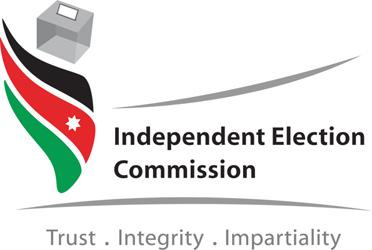You are here
Gov't receives 17 requests for new political parties following RCMPS recommendations — Maaytah
By Rana Husseini - Feb 03,2022 - Last updated at Feb 02,2022
AMMAN — Minister of Political and Parliamentary Affairs Musa Maaytah said that the government has received 17 requests to register new political parties in recent weeks.
"We granted licences to four new political parties so far after reviewing their applications," Maaytah told The Jordan Times.
The draft laws were the result of the Royal Committee to Modernise the Political System (RCMPS)’s recommendations that were forwarded to the government late last year.
The Cabinet endorsed the recommendations recently and sent them to Parliament.
The Lower House Legal Committee held several meetings with RCMPS members as well as civil society and political parties' figures to hear their demands and opinions about the draft bill.
Currently, there are 52 registered political parties in the Kingdom, according to Maaytah.
"The government's goal is to ensure a strong political party presence and performance in the Parliament whereby they can adopt strong and transparent programmes that will produce future governments based on a political parties' majority," the minister stressed.
Political activists have expressed mixed views regarding the elections and political parties’ draft laws, with some anticipating it will pave the way for a “new era” in political life for Jordan.
Others, however, were more sceptical charging that the new law was drafted in a manner to “bring in new ‘leftists’ who will go along with the government on many issues and replace them with the current leftists and communists”, activists noted in recent interviews with The Jordan Times.
The RCMPS' recommendations that were reflected in the draft bill aimed to enable political parties to create programmes and to form or participate in governments in accordance with Article 35 of the Constitution.
The law also motivates people to form programmatic political parties freely and effectively and to expand the representation of political parties in Jordanian society.
The law further enabled political parties to participate in elections of all kinds.
The law specified that the number of founders of a party should be no less than 300 members, noting that the founding ceremony of a party should be held within a period not exceeding one year since the beginning of the party’s social activities.
During the founding ceremony, the party members should be no less than 1,000, the law set forth, provided that the founders must be residents of at least six governorates, taking into account that there are no less than 30 people from each governorate.
A total of 20 per cent of the founders should be between the ages of 18 and 35, while women should constitute at least 20 per cent of the total number of founders.
Among the founders, at least one person with disabilities should partake in the party, the draft law requires, noting that founders attending the founding ceremony are no less than the majority of its founding members.
The law ensures that no citizen may be subjected to, questioned, held accountable or deprived of their legal rights due to their party affiliation.
It also grants the right to students of higher education who are members of a party to practise all party activities on the campus of educational institutions, without any restrictions or prejudice, provided that special regulations are issued to organise these activities.
The law called for establishing a department called the “Registry of Parties” in the Independent Election Commission, a neutral independent body, which authorises the establishment of the party in accordance with the provisions of the Political Parties Law, follows up on party affairs, and ensures their adherence to laws and regulations.
The law also permitted parties to establish political relations with other internal or external parties or with federations of international political parties, within the framework of the national and general political interest of the state, and with adherence to the provisions of the Constitution and the law, provided that this relation does not constitute an organisational link to the party with those parties or unions.
Regarding the financial empowerment of parties, the party, after the announcement of its establishment, enjoys a legal personality, and it has the right to own the necessary movable and immovable funds to enable it to carry out its tasks and any other actions in accordance with the provisions of the law. The party’s headquarters is also exempt from all taxes and government fees that result from immovable funds.
The law also considers donations and gifts provided to the party as deductible expenses from funds subject to income tax on companies and individuals, in accordance with the provisions of the Income Tax Law. Further, an item is allocated in the state’s general budget to contribute to supporting parties from Treasury funds, and specifying the conditions for providing support, its amount, aspects and procedures for disbursing it according to the system issued for this purpose.
The secretary-general of the party may not occupy this position for more than two consecutive terms, provided that the party determines the duration of the term not exceeding four years.
Related Articles
AMMAN — Independent Election Commission (IEC) Chief Commissioner Musa Maaytah on Wednesday emphasised the importance of enhancing the
AMMAN — The Independent Election Commission (IEC)’s name is expected to be changed following recent recommendations by a Royal committee to
AMMAN – Political activists have expressed mixed views regarding the elections and political parties’ draft laws, with some anticipating it















